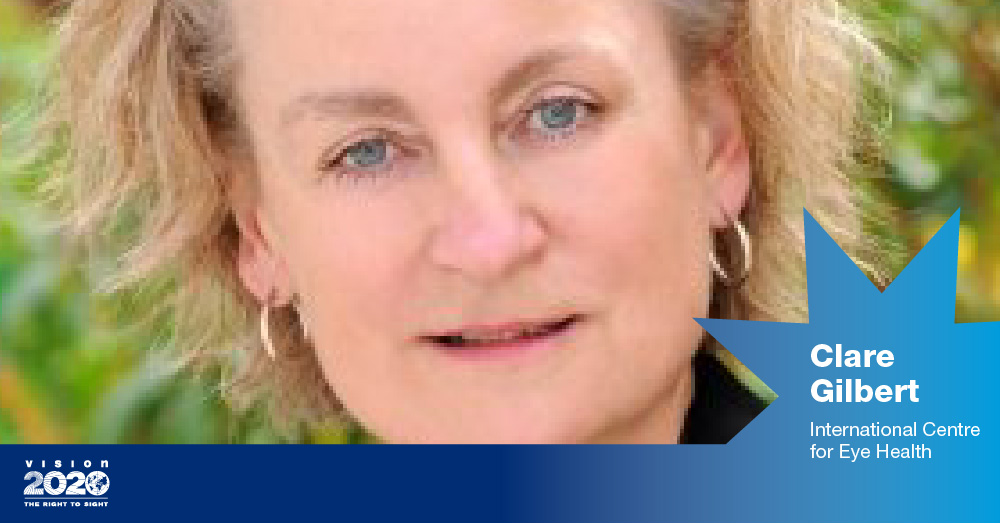Join the Leading Global Eye Health Alliance.
Membership-
Choose an alternate language here

Professor Clare Gilbert has worked for 30 years to ensure strategies and programmes to prevent childhood blindness are included in global eye care. Her work provided the evidence for the World Health Organization, governments and INGOs to develop policies and programmes to reduce childhood blindness.
In the 1990s, Clare developed the classification system for causes of childhood blindness which was adopted by WHO and is now used worldwide. The data made available by this classification allows the causes of childhood blindness in different countries to be identified. Clare also demonstrated that childhood blindness prevalence is associated with the under-5 mortality rate, which can therefore be used as a proxy to estimate the number of blind children in different populations. With this information, governments and INGOs are able to plan programmes to control the relevant diseases leading to visual loss in children, like retinopathy of prematurity, cataract and vitamin A deficiency. As a direct result of this work, control of blindness in children was included as a priority in the ‘VISION 2020” initiative.
Clare worked as Medical Advisor to Sightsavers for many years, guiding policy and programme development and had a direct role in several important projects. In Bangladesh, Clare and Dr Muhit developed the key informant method to identify blind children, train paediatric ophthalmologists and develop Child Eye Care Centres across Bangladesh, resulting in 24,000 childhood cataract operations in a six-year period. Clare also led the national survey of eye disease in Nigeria (2005-2007) surveying 13,000 people, demonstrating that one million Nigerians are blind, and resulting in a national eye care plan for Africa’s largest country.
Concurrent to her work on childhood blindness classification, in the 1990s Clare was Director of the Masters in Community Eye Health at ICEH, during which time she trained many eye care leaders who have gone on to hold senior, influential positions. Clare continues to be a key member of the teaching staff at ICEH running the modules on “research skills” and “childhood eye diseases”. Her training of eye care leaders has contributed to improvements in eye care particularly in low and middle-income country populations impacting the eye health of millions of people worldwide.
More recently Clare was a scientific adviser to the Queen Elizabeth Diamond Jubilee Trust and responsible for developing their programmes on Retinopathy of Prematurity and Diabetic Retinopathy with a focus on India where she did a great deal of planning and training staff with GV Murthy and the Ministry of Health. In the last 2 years Clare has been a main contributor and editor of the World Report on Vision and a member of the Lancet Commission on Global Eye Health.
As well as being the international expert on childhood blindness Clare has contributed massively to improving general eye care around the world through her advice to WHO, INGOs and governments, her research and her commitment to train the next generation of leaders. As such, she is an exceptional candidate for IAPB’s VISION 2020 Award.